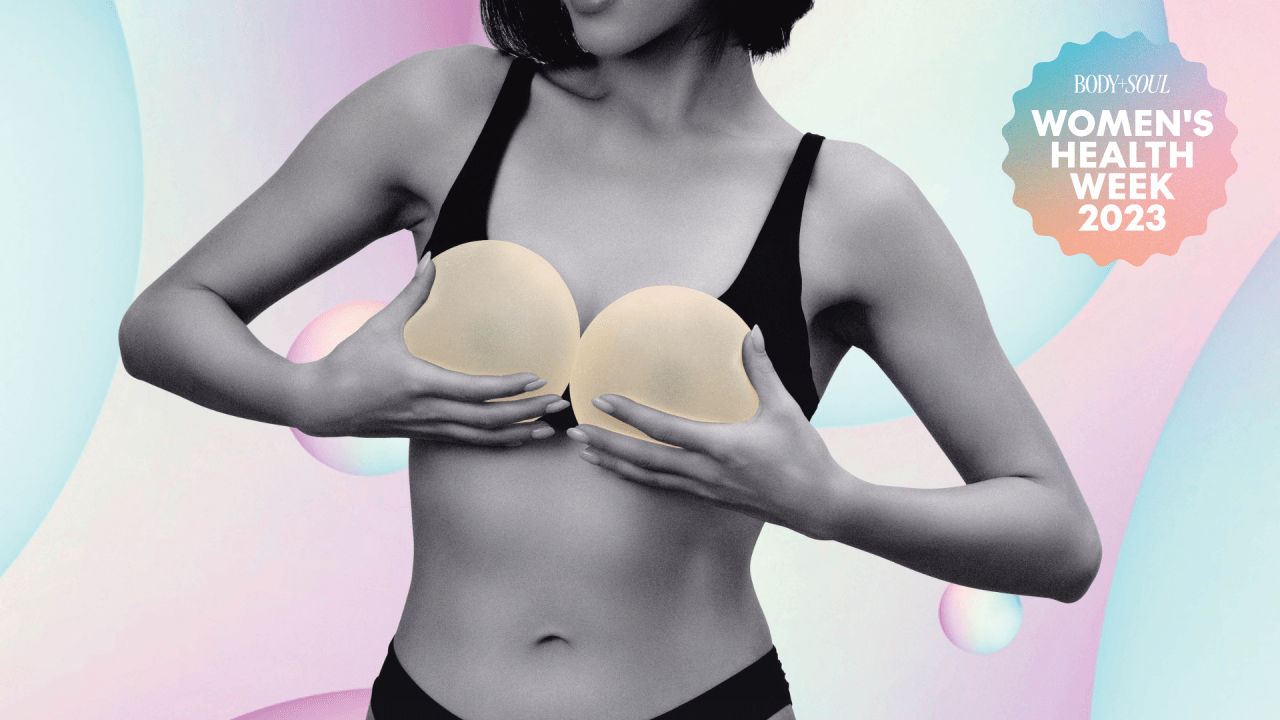
It’s been a cosmetic surgery staple for decades. Now, a way to boost your bust is being blamed for a range of hard-to-pinpoint health issues.
Always wanted a bigger cup size. Missing the volume that gravity and children robbed. Recovering post-mastectomy. Sick of pokey push-up bras. Chicken fillets belong on a plate. Whatever the reason, an estimated 20,000 Aussie women elect to have breast-enhancement surgery each year.
So it’s easy to assume the millions of implants that have happened around the globe over the past century, along with advances in technology, mean the side effects and risks have been whittled down to a bare minimum.
But experts now suspect the opposite is true. In fact, aside from very obvious complications like rupture and infection, evidence suggests a far greater number of recipients experience a vague but crippling condition called breast implant illness (BII). And as medical and community awareness grows, so are the number of women wanting their implants out.
Like what you see? Sign up to our bodyandsoul.com.au newsletter for more stories like this.
Television host and bestselling author, Andi Lew, is one such woman. She experienced BII – which presents as a constellation of symptoms including fatigue, joint and muscle pain, headaches and brain fog – due to an undetected rupture. Six surgeons and an MRI told her there was no issue before she found a doctor who took her concerns seriously.
“I didn’t know how deep the suffering was until I started joining the dots,” says Lew of the symptoms, which can occur either immediately after implant surgery or many years later. “It impacted my ability to earn, to concentrate, my ability to have any kind of relationship, and my relationship with myself was terrible because I thought that I was going crazy.”
Lew had explant surgery earlier this year and is thrilled with the results. “After my removal, I felt instantly better. The weight was literally off my chest,” she says. “The inflammation started to decrease within days.” She’s now written a book about nurturing women through their explant journey, which will be available in October in bookstores across Australia.
“The exact causes of BII are still unknown and being investigated,” says Dr Alia Kaderbhai, a GP and chair of the RACGP Specific Interests Breast Medicine network.
“We know it can occur with any type of implant, and it doesn’t necessarily mean that it has ruptured. We’re even seeing this illness in implants that are intact.”
So what’s going on? The strongest hypothesis is that some patients are predisposed to an immune reaction to the implant materials, with the body then reacting to the consequent inflammation.
Treatment generally involves having an explant and capsulectomy, the removal of the thickened scar tissue that’s formed around the implant. However, getting to that point can be a long road of inconclusive tests and ruling out other causes.
Professor Anand Deva is the head of cosmetic, plastic and reconstructive surgery at Macquarie University in Sydney. He and a team of researchers have been studying the symptoms of BII to better understand the condition.
“There are no specific diagnostic criteria, as BII is yet to be officially recognised as a medical condition,” the surgeon notes. It’s also important to rule out other conditions like lupus, rheumatoid arthritis, thyroid issues, or iron and vitamin D deficiency, he says.
Personal stylist and health coach, Elisha Casagrande, was in the dark about BII when she began to experience symptoms four years after her implant surgery. “I heard the term roughly two years after my explant,” she says. “I was never informed about the risks of BII, not before my implants, nor during the years when my symptoms were at their worst.”
For Casagrande, implant removal has been life-changing. “My immune system has drastically improved, and I no longer have any auto-immune type symptoms. Coincidentally, clothes look better now than they ever did with implants, I have far greater upper body strength, and I can now lie comfortably in bed at night, which has improved my sleep quality and energy levels throughout the day.”
Something more women are reporting as awareness around this silent health issue (and the explant movement) continues to rise.
Five health red flags
Dr Kaderbhai suggests speaking to your GP – and asking to be thoroughly checked out with BII in mind – if you have implants and experience any of these symptoms:
- Brain fog
- Poor concentration
- Unusual rashes
- Joint aches
- New-onset respiratory illness